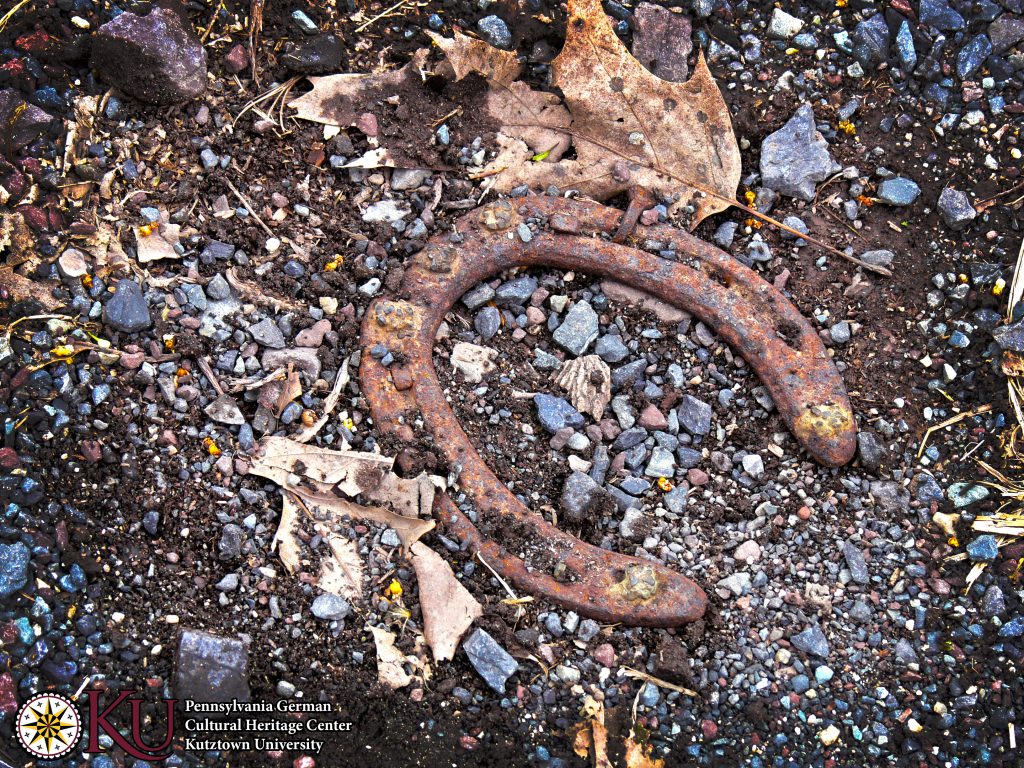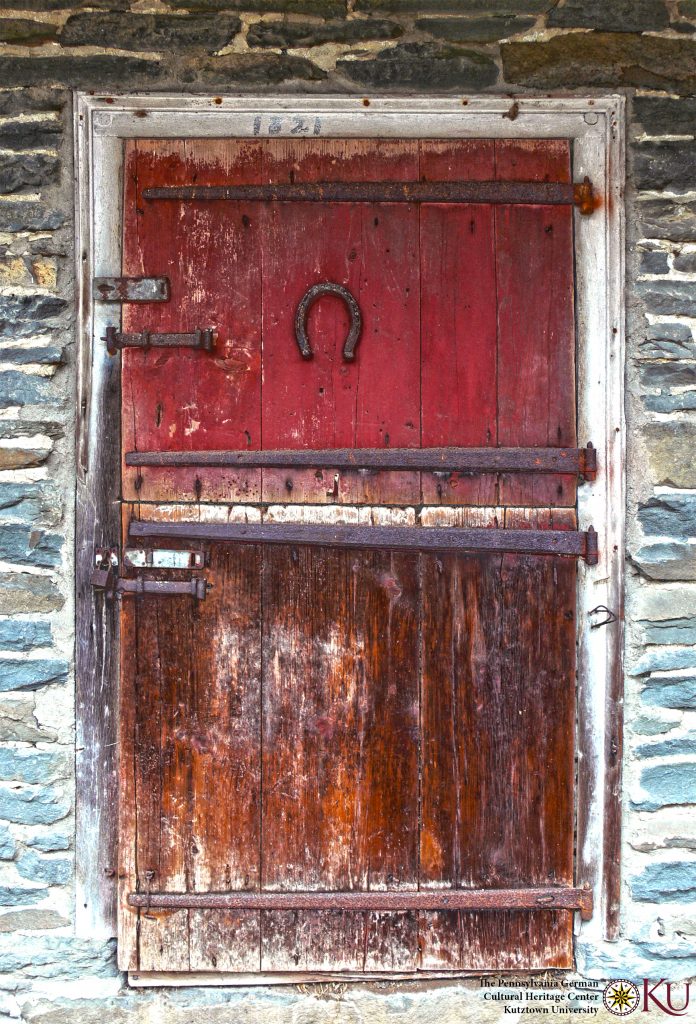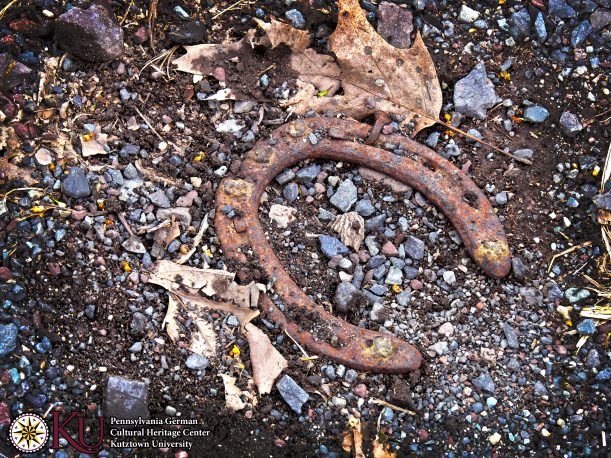Karsamschdaag (Holy Saturday)

According to Pennsylvania Dutch tradition, “mer soll net nix vun der Schtrooss uffhewe, es iss verleicht gebraucht warre mit” (One should not pickup anything from the street, as perhaps it was used to powwow). This old phrase implied that anything found lying in the street was considered suspect, as it may have been ritually used with the intent to remove an illness. In the case of warts for instance, one could rub the wart on a penny, and leave it in the street, whereby the first passerby to pick it up would, according to these beliefs, inherit the wart. For previous generations, a wide range of common, household objects were used in this manner, and therefore anything lying the street was not to be touched or handled. However, there was one exception to this rule—and that was on Karsamschdaag (Holy Saturday).
This day is the last day of Lent, and it was a day reserved for the remembrance of Christ’s lying in the tomb, and, according to Catholic tradition, for the Harrowing of Hell. Although this concept is not widely known to most Protestant Pennsylvania Dutch, the concept was once universally understood in Europe as the day when, according to Christian legend, Christ triumphantly descended to into hell, preached a sermon, and released the captive spirits held there since the beginning of creation, including Adam and Eve, and all of the patriarchs and figures Old Testament. This story was dramatized in some versions of the Passion plays popular through out Europe’s history, and was also included in widely circulated folk-religious texts among the Pennsylvania Dutch, such as the Gospel of Nicodemus, printed in 1819 in Reading, Pennsylvania. One would might ask, what does this story of Holy Saturday have to do with overturning the taboo of picking things up in the streets? The answer is simple:

It was an old European tradition that Holy Saturday was particularly well-suited for picking up and requisitioning a found object that was meant to be protective, because there would be no earthbound spirits attached to such objects to hinder you. The logic was that just as Christ gathered all of the spirits of the underworld together on Holy Saturday, so too were the bad spirits held in bondage and forced to listen to his sermon. This opportune time was thought to be especially true for picking up horseshoes, which were traditionally nailed on doors on Holy Saturday in communities such as the Lüneberger Heath in Southern Saxony and other locations throughout Europe. Just remember that the old way to orient the horseshoe among the Pennsylvania Dutch and other German-speaking peoples was with the branches pointing down to bind evil, rather than upward as the English perceived the horseshoe to be a vessel to hold luck.
DISCLAIMER: Despite the folklore associated with this day, we are not actually advocating for anyone to pick up anything dirty found in the street. If you decide to celebrate Karsamschdaag, please remember to continue to practice social distancing strategies and stay home. A far less exciting folk-cultural practice is also associated with Holy Saturday – cleaning the whole house. Try this instead if you’re in the mood to celebrate the day!

